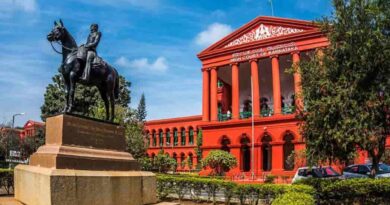Supreme Court to GST Department: “How Can You Appeal Against Your Own Order?” – SpiceJet Service Tax Case
The Supreme Court strongly criticised the Central GST and Central Excise Department, Delhi South, for appealing against an order issued by its own Commissioner in a service tax dispute with SpiceJet. The Bench of Justices JB Pardiwala and R Mahadevan dismissed the appeal, questioning the logic behind challenging a decision that the department itself had made and that had been upheld at every stage.
The dispute began with a show-cause notice issued to SpiceJet on 21 October 2014, raising three issues:
- Wrongly claimed CENVAT credit of ₹21.55 crore (July 2010–March 2011).
- Service tax of ₹4.01 crore on excess baggage fees.
- Use of the extended limitation period to allege suppression of facts.
On 31 March 2016, the Service Tax Commissioner ruled in favour of SpiceJet, holding that:
- The demand for reversal of CENVAT credit was unjustified.
- No extra service tax was payable on excess baggage fees.
- The extended limitation period could not be applied.
The department’s appeal to the Customs, Excise & Service Tax Appellate Tribunal (CESTAT) was dismissed on 3 July 2023 as “time-barred”. The Delhi High Court also dismissed their appeal on 5 December 2024, noting it was not maintainable.
Despite this, the GST department approached the Supreme Court. The apex court not only dismissed the case but also expressed surprise at the decision to file it in the first place, given that the Commissioner’s original order had already been upheld multiple times.
SpiceJet was represented by Advocate Charanya Lakshmikumaran of Lakshmikumaran & Sridharan, while Senior Advocate Arjit Prasad appeared for the GST department.
Case Title: Commissioner CGST v. SpiceJet





